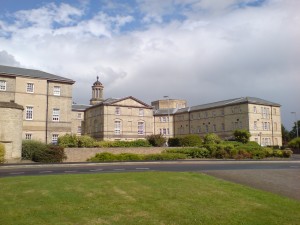I am lucky enough to be spending most of my time on research this month, and am using my leave to work on a number of projects all centred around my interests in music’s place and role in nineteenth-century Britain.
In one ongoing project I am bringing together a number of essays by different scholars on the music profession during the ‘long’ nineteenth century. Musicians are difficult to fit into the historical classifications of social classes, much of which were related to employment and earnings. During the nineteenth century many musicians earned very little through teaching or performing. It was not unusual for musicians to put together a ‘portfolio’ of jobs which might also include selling music or instruments, or work entirely unrelated to music. Others were very successful in building up contacts, and a few musicians managed to achieve a high status as well as considerable wealth. Throughout the nineteenth century there were efforts to address the status of musicians, whether through societies, formal training and examination or formalisation of relationships and working practices. The book I’m putting together includes chapters on music publishers, critics and teachers as well as women, music hall artists and church musicians. A volume like this is a great way to get lots of perspectives on a problem or theme and this brings together some really interesting case studies. You can get a sense of some of the topics from the conference I held on this topic back in 2015: http://www.open.ac.uk/Arts/music-profession-conference/index.shtml

My second main project is related to music in asylums in the nineteenth century. I have a real interest in how music relates to health and morality, and the way this influenced the way it was seen in the nineteenth century. Many asylums supported bands, made up from the nursing attendants, as well as visiting musicians, choirs and informal music making. I am continuing to visit archives to look at asylum material when I can. I’m also starting to draw my work together and disseminate it. Later this month I’m giving a presentation at the Bethlem Museum of the Mind, which is founded on the old Bethlem asylum site in South London. All are welcome to attend (booking via http://museumofthemind.org.uk/whats-on/event-info/music-as-therapy-in-the-nineteenth-century-asylum). I’m also keeping a note of my work on a blog: https://musichealthandhappiness.wordpress.com/
